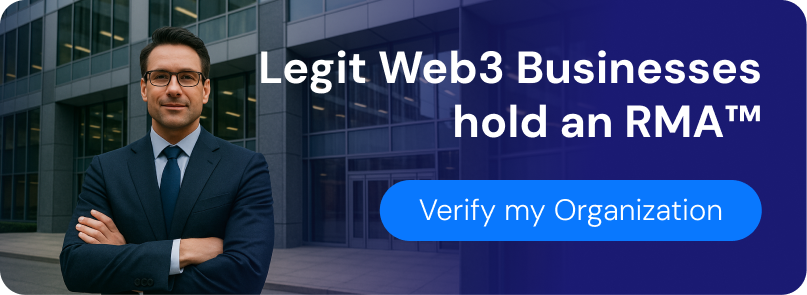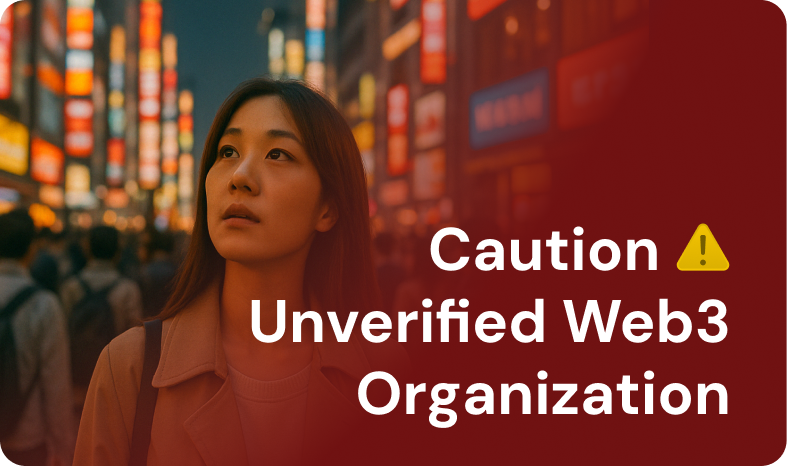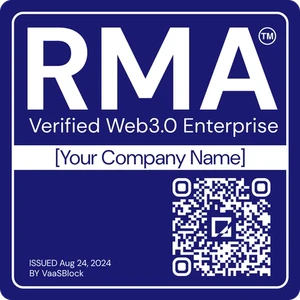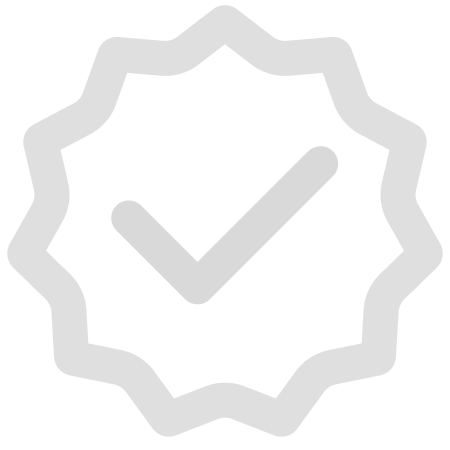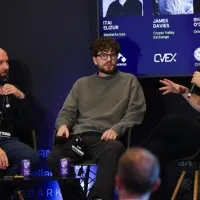
Orbs
Risk Management
?Risk Management
The RMA™ is a blockchain credibility certification assessing governance, transparency, security, and results, providing trusted verification for businesses in Web3.
VaaSBlock has not audited this project and cannot vouch for this organization.
RMA™ Status: ❌ Unverified
Verification of 6 major compliance criteria.
Technology
?Technology
A collection of public facing information, data collected through partners and our own tools view we present a projects technology in one place for easy verification.
Analysis and testing of tech infrastructures.
Marketing
Alpha?Marketing
Top level look at a projects marketing capablities currently in alpha this section will grow to show quickly how a project promotes itself and the effectiveness.
Screening of user base and community feedback.
Background
?Background
Using multiple public facing sources across the web view a summary of a projects purpose, key achievements and general overview.
Collection of basic administrative documentation.
Risk Management
Last Updated
2025/4/16
Transparency
Transparency Score
Algorithmic assessment of a project’s transparency level, using multiple public data points to measure its commitment to compliance, documentation, and clarity in communication.
Transparency Score
Category Rank
A ranking that positions the organization among its industry peers, evaluating its relative performance based on key compliance, credibility, and transparency indicators.
Category Rank
Orbs vs Layer-1
VaaSBlock Rank
A global ranking that compares the organization against all entities listed on VaaSBlock, reflecting its overall credibility, transparency, and operational performance versus the full Web3 ecosystem.
VaaSBlock Rank
Orbs vs All Listed Organizations
Transparency
Transparency Score
Transparency Score
Algorithmic assessment of a project’s transparency level, using multiple public data points to measure its commitment to compliance, documentation, and clarity in communication.
Category Rank
Orbs vs Layer-1
Category Rank
A ranking that positions the organization among its industry peers, evaluating its relative performance based on key compliance, credibility, and transparency indicators.
VaaSBlock Rank
Orbs vs All Listed Organizations
VaaSBlock Rank
A global ranking that compares the organization against all entities listed on VaaSBlock, reflecting its overall credibility, transparency, and operational performance versus the full Web3 ecosystem.
RMA™
✘ UnverifiedCorporate Governance
The verification of fundamental governance, organizational structure, including verifying the entity’s legal registration and adherence to local laws and regulations.
Corporate
Governance

Team Proficency
Evaluation of an organization’s personnel, ensuring that crucial team members possess the expertise and dedication necessary to execute current business models and scale effectively.
Team
Proficiency

Technology & Security
Assessment of the organization’s technological framework, including blockchain integrations (where relevant), system architecture, and overall IT infrastructure.
Technology
& Security

Revenue Model
Comprehensively evaluation of a company’s income-generating strategies (how do they make or intend to make money), ensuring financial robustness and sustainability.
Revenue
Model

Results Delivered
The Results Delivered component of the RMA™ audit comprehensively evaluates an organization’s ability to achieve its goals and honor its commitments.
Results
Delivered

Planning & Transparency
The Planning and Transparency component of the RMA™ audit offers a thorough assessment of how an organization manages its workflow and prepares for unexpected challenges.
Planning &
Transparency

Technology
Marketing
Marketing Effectiveness
This score assesses the impact of detected marketing activity and the corresponding price movement of a token. The score understands whole market movements to ensure tokens are assessed fairly against peers.
Marketing Effectiveness
Confidence Index
This index determines our confidence in the score we have given. Generally, as more data is collected, the confidence index will increase. If a project has lots of activity, this confidence is earned faster.
Confidence Index
VaaSBlock Rank
This identifies where a project sits compared to all projects accessed for Marketing Effectiveness.
VaaSBlock Rank
Orbs vs All Listed Organizations
Marketing Effectiveness
Marketing Effectiveness
This score assesses the impact of detected marketing activity and the corresponding price movement of a token. The score understands whole market movements to ensure tokens are assessed fairly against peers.
Confidence Index
Confidence Index
This index determines our confidence in the score we have given. Generally, as more data is collected, the confidence index will increase. If a project has lots of activity, this confidence is earned faster.
VaaSBlock Rank
Orbs vs All Listed Organizations
VaaSBlock Rank
This identifies where a project sits compared to all projects accessed for Marketing Effectiveness.
No Chain No Gain™ Podcast ⛉
This Organization is yet to join the No Chain No Gain™ Podcast and share insights on what makes their business trustable and innovative.
💡 NCNG generated over 1 Million impressions in its first six months of existence.
PR Impact
PR Impact
VaaSBlock provides estimations to the impact that traditional digital media can have on a project. This is an early release; more areas of PR are planned in future versions.
Search Terms ? Search TermsThese are the terms we discovered the article for on page one of Google. | Est. Traffic ? Estimated TrafficWe estimate how much traffic an article will get. Generally, our estimations are slightly higher than those of more established tools. We are working on the algorithm all the time, and results could change. | Est. Value ? Estimated ValueBased on the estimated traffic we generate an estimation for what this traffic would have cost to generate if you tried to target these users with ads. The positions for the article on google and the location of the traffic are the major factors in this estimation. | |||
|---|---|---|---|---|---|
Backscatter (photography) – Wikipedia source: en.wikipedia.org | Backscatter (photogr… — Backscatter (photography) – Wikipedia source: en.wikipedia.org | Organic | en.wikipedia.org | ||
What is Orbs? source: thebigwhale.io | What is Orbs?… — What is Orbs? source: thebigwhale.io | Organic | thebigwhale.io | ||
Orbs source: Coinbase | Orbs… Seen 2023-03-13T19:00:00.000Z Orbs source: Coinbase | Organic | coinbase.com | ||
Backscatter_(photography) source: Wikipedia | Backscatter_(photogr… Seen 2023-03-13T19:00:00.000Z Backscatter_(photography) source: Wikipedia | Organic | bitget.com |
| Est. Traffic | Est. Value | ||
|---|---|---|---|
Backscatter (photogr… — | |||
What is Orbs?… — | |||
Orbs… Seen 2023-03-13T19:00:00.000Z | |||
Backscatter_(photogr… Seen 2023-03-13T19:00:00.000Z |
Ratings
AlphaOverall
Aggregated Rating
The combined score with AI-driven weighted analysis to provide the best possible project rating.
7 verifications
Confidence Index
This index determines our confidence in the score we have given. Generally, as more data is collected, the confidence index will increase. If a project has lots of activity, this confidence is earned faster.
None
7 verifications
External Reviews
Third-party reviews are important for your reputation.
You have additional elements to add? Work with us and keep your profile updated.
Background
Organization Name – Orbs
Category – Layer-1
About
powered by irmaAI
irmaAIOrbs is a Layer‑3 public blockchain infrastructure platform, founded in 2017 and launched its mainnet in March 2019. Built by a team headquartered in Tel Aviv with offices in London, Singapore, Toky…o, and Seoul, Orbs was conceived to address the limitations of first‑ and second‑layer blockchains by offering a dedicated execution layer optimized for complex smart contract operations and advanced on‑chain financial tools.
Unlike traditional chains, Orbs functions as a “decentralized backend,” enhancing existing EVM (Ethereum Virtual Machine) platforms such as Ethereum, Polygon, BNB Chain, Avalanche and non‑EVM systems by adding aggregated liquidity, low‑fee execution, advanced trading orders, and decentralized derivatives without requiring asset migration.
Powered by a Proof‑of‑Stake (PoS) validator network of “Guardians” that are elected using the native ORBS token, the platform allows developers to deploy multiple scalable virtual chains with separation between applications, high transaction throughput, and secure shared execution capabilities.
Aiming to bring centralized‑exchange (CeFi) quality execution to decentralized finance (DeFi), Orbs introduced protocols like dTWAP and dLIMIT, enabling time‑weighted average price orders and limit orders on decentralized exchanges (DEXs). These smart contract protocols offer enhanced control, liquidity pooling, and pricing comparable to CeFi, augmenting existing crypto‑native platforms without creating new chains.
Its “Liquidity Hub” aggregates sources across chains and DEXs, allowing seamless access to deep liquidity while maintaining low fees and decentralization.
Orbs’ architecture supports hybrid execution via Orbs VM and Orbs Lambda, forming a middleware layer tailored for enterprise‑grade application deployment.
Since the 2019 mainnet era, Orbs has attracted close to $15.4 million in its 2018 Series A round, backed by investors like Outlier Ventures, Kakao Investment, VestChain Capital, and others.
The founding team—Tal Kol (CTO), Daniel Peled (President), Uriel Peled, and Netta Korin—brings a blend of technical, legal‑financial, and partnership expertise.
The network comprises 30+ employees, with over half dedicated to R&D, and has earned praise from Gartner as a “Cool Vendor in blockchain technology”.
Orbs targets both DeFi and enterprise users. It has engaged with telecom initiatives like CBAN, and developed partnerships with Arbitrum‑based DEXs including QuickSwap, SpookySwap, Thena, and Arbidex to integrate Orbs’ protocols, enabling advanced order types and bolstered throughput.
The V4 upgrade further enhances Orbs’ L3 infrastructure—boosting robustness, node performance, and scalability to meet growing demand.
Technically, Orbs delivers multiple virtual chains—isolated environments for smart contracts that maintain performance boundaries while allowing inter‑chain state access. Validators run virtual chain instances via Orbs VM or Orbs Lambda, and settlements occur on base layers like Ethereum. Fee settlement, staking, and governance all use the ORBS token, giving stakers voting power and liquidity incentives.
Ecosystem growth shows over 161 open‑source repositories, integrations with AWS, Azure, and Google Cloud, and a social presence of 46,000+ Twitter followers.
Governance is decentralized via Snapshot‑based voting, and community proposals drive technical enhancements and ecosystem funding through the Orbs Ecosystem Grants Program.
The target is to ease complex smart‑contract logic workflows, reduce centralized failure risk, and empower developers across DeFi, gaming, NFT, and enterprise domains.
In comparison to L1s or L2s, Orbs stands out by extending existing blockchain ecosystems with more sophisticated on‑chain capabilities while preserving security and interoperability. The ORBS token also plays a critical role in decentralizing validator election and fee settlements—bridging technical execution and governance.
As of today, Orbs continues rolling out its V4 upgrade, extending enterprise use cases, and further integrating its L3 stack with developer tooling, cross‑chain bridges, staking wallets like TETRA, and third‑party support from staking platforms like Moonstake.
It hosts a Guardian network across global nodes in Switzerland, South Korea, Japan, and Singapore.
The platform’s continued focus is on empowering sophisticated on‑chain trading and backend execution functionality for developers and enterprises while retaining decentralization and performance. Read More
Creation Date
February 2026
Headquarters
Tel Aviv, Israel
Organization Maturity Level
Growing Business
RMA™ Type
–
Useful Links
Website – orbs.com
Notable Achievements
2017
Project founded
2018
$15 M Series A
2019
Mainnet launch
2022
Introduced L3 architecture (v3)
- vaasblock.com /
- Layer-1 /
- Orbs



